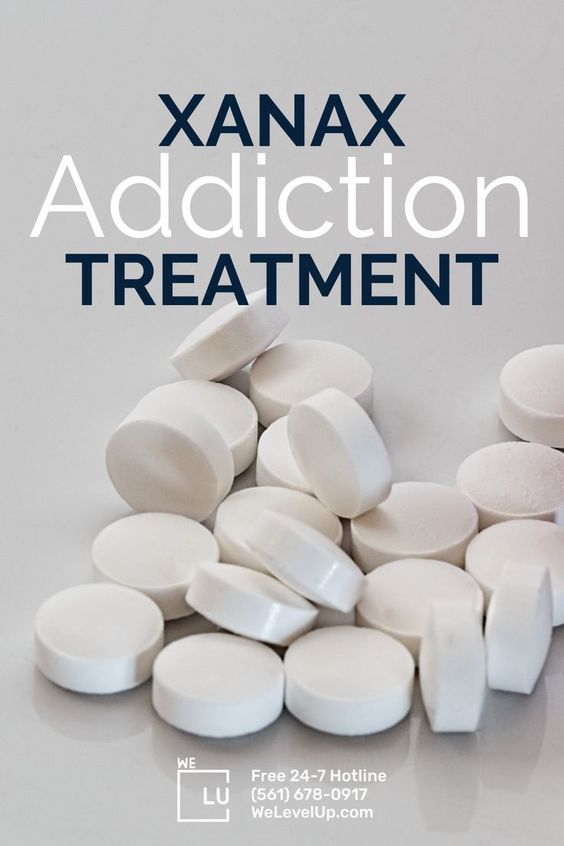Alcohol and the Aging Process
Alcohol may act differently in older people than in younger people. Some older people can feel “high” without increasing the amount of alcohol they drink. This “high” can make them more likely to have accidents, including falls and fractures and car crashes. Also, older women are more sensitive than men to the effects of alcohol and aging.
Drinking too much alcohol over a long time can:
- Lead to some kinds of cancer, liver damage, immune system disorders, and brain damage
- Worsen some health conditions like osteoporosis, diabetes, high blood pressure, stroke, ulcers, memory loss and mood disorders
- Make some medical problems hard for doctors to find and treat—for example, alcohol and aging causes changes in the heart and blood vessels. These changes can dull pain that might be a warning sign of a heart attack.
- Cause some older people to be forgetful and confused—these symptoms could be mistaken for signs of Alzheimer’s disease. [1]
In addition, older people tend to take more medicines than younger individuals, and mixing alcohol with over-the-counter and prescription drugs can be dangerous or even fatal.

Alcohol and Aging Tolerance
“As we age, it takes longer for the body to break down alcohol. It stays in the system longer. Tolerance also decreases. Excessive drinking can compromise your immune system and can lead to some forms of cancer,” said Brad Lander, an addiction medicine specialist at Ohio State University Wexner Medical Center. [2]

As you age, your drinking habits may change. Social drinking when you’re young may turn to drinking alcohol to relieve boredom, loneliness, and grief, which are common with aging. The risk of becoming an alcoholic is greater for women than men, Lander noted.
Also, according to the U.S. National Institute on Alcohol Abuse and Alcoholism, even after you stop drinking, alcohol continues to enter the bloodstream, resulting in impaired judgment and coordination for hours.
“It also can decrease the effectiveness of some medications and highly accelerate others, including over-the-counter medications such as aspirin, acetaminophen, sleeping pills and others,” Lander added in a center news release.
Alcohol and aging can also cause problems with balance and reaction times, increasing the chances of accidents and falls.
Alcohol Can Make Vital Organs Weaker
Alcohol and aging can worsen health problems such as diabetes, high blood pressure, stroke, osteoporosis and liver disease.
Excessive drinking can also increase the odds of dementia, depression, suicide, and impaired sexual functioning, Lander said. However, the differences between safe, moderate, and heavy drinking are different for everyone.
Your body might also experience other age-related changes that increase the risks associated with drinking. Your eyesight and hearing may deteriorate; your reflexes might slow. These kinds of changes can make you feel dizzy, high, or intoxicated even after drinking only a small amount. As a result, older people are more likely to have alcohol-related falls, automobile collisions, or other kinds of accidents. Drinking can also worsen many medical conditions common among older people, such as high blood pressure and ulcers. [3]
Alcohol Can Slow Your Brain
Difficulty walking, blurred vision, slurred speech, slowed reaction times, impaired memory: Clearly, alcohol affects the brain. Some of these impairments are detectable after only one or two drinks and quickly resolve when drinking stops. On the other hand, a person who drinks heavily over a long period of time may have brain deficits that persist well after he or she achieves sobriety. Exactly how alcohol affects the brain and the likelihood of reversing the impact of heavy drinking on the brain remain hot topics in alcohol and aging research today. [4]
We do know that heavy drinking may have extensive and far-reaching effects on the brain, ranging from simple “slips” in memory to permanent and debilitating conditions that require lifetime custodial care. And even moderate drinking leads to short–term impairment, as shown by extensive research on the impact of drinking on driving.
A number of factors influence how and to what extent alcohol affects the brain (1), including:
- How much and how often a person drinks
- The age at which he or she first began drinking, and how long he or she has been drinking
- The person’s age, level of education, gender, genetic background, and family history of alcoholism
- Whether he or she is at risk as a result of prenatal alcohol exposure; and
- His or her general health status
Alcohol and aging can produce detectable impairments in memory after only a few drinks and, as the amount of alcohol increases, so does the degree of impairment. Large quantities of alcohol, especially when consumed quickly and on an empty stomach, can produce an alcohol blackout, or an interval of time for which the intoxicated person cannot recall key details of events or even entire events.
People who have been drinking large amounts of alcohol for long periods of time run the risk of developing serious and persistent changes in the brain. Damage may be a result of the direct effects of alcohol on the brain or may result indirectly, from a poor general health status or from severe liver disease.

Up to 80 percent of alcoholics, however, have a deficiency in thiamine, and some of these people will go on to develop serious brain disorders such as Wernicke–Korsakoff syndrome (WKS). WKS is a disease that consists of two separate syndromes, a short-lived and severe condition called Wernicke’s encephalopathy and a long-lasting and debilitating condition known as Korsakoff’s psychosis.
The symptoms of Wernicke’s encephalopathy include mental confusion, paralysis of the nerves that move the eyes (i.e., oculomotor disturbances), and difficulty with muscle coordination. For example, patients with Wernicke’s encephalopathy may be too confused to find their way out of a room or may not even be able to walk.
Many Wernicke’s encephalopathy patients, however, do not exhibit all three of these signs and symptoms, and clinicians working with alcoholics must be aware that this disorder may be present even if the patient shows only one or two of them. In fact, studies performed after death indicate that many cases of thiamine deficiency–related encephalopathy may not be diagnosed in life because not all the “classic” signs and symptoms were present or recognized.
Alcohol Can Affect Your Heart
Excessive alcohol intake can lead to high blood pressure, heart failure, or stroke. Excessive drinking can also contribute to cardiomyopathy, a disorder that affects the heart muscle.
Women are more vulnerable than men to many of the medical consequences of alcohol and aging. For example, alcoholic women develop cirrhosis, alcohol-induced damage of the heart muscle (i.e., cardiomyopathy), and nerve damage (i.e., peripheral neuropathy) after fewer years of heavy drinking than do alcoholic men. Studies comparing men and women’s sensitivity to alcohol-induced brain damage, however, have not been as conclusive.
Alcohol Hits You Faster
As we age, we lose muscle mass. We also typically have less water in our bodies. That means an older person who drinks the same as a younger person, or the same as they did in their younger years, will generally have a higher blood alcohol concentration.
Alcohol Can Dehydrate You
Alcohol can dehydrate you. Alcohol is a diuretic. It causes your body to remove fluids from your blood through your renal system, which includes the kidneys, ureters, and bladder, at a much quicker rate than other liquids. If you don’t drink enough water with alcohol, you can become dehydrated quickly.

Alcohol and Skin Aging
Alcohol is known to dehydrate the skin, depriving it of the moisture and nutrients it needs to keep our complexion looking radiant, supple, and youthful. Alcohol removes the fluid in the skin which can increase the appearance of wrinkles, dryness, and sagging skin.
How Does Alcohol Use Result in Premature Aging?
The impact of alcohol on aging is multifaceted. Evidence shows that alcoholism or chronic alcohol consumption can cause both accelerated (or premature) aging – in which symptoms of aging appear earlier than normal – and exaggerated aging, in which the symptoms appear at the appropriate time but in a more exaggerated form.
The effects of alcohol abuse/misuse on the aging process include hypertension, cardiac dysrhythmia, cancers, gastrointestinal disorders, neurocognitive deficits, bone loss, and emotional disturbances, especially depression. On the other hand, research also shows that drinking moderate amounts of alcohol may protect healthy adults from developing coronary heart disease. The American Heart Association cautions people not to start drinking if they are not already drinking.

Several evidence-based treatment approaches are available for alcohol use disorder.
Alcohol Can Make You Feel Older, Too
Why are so many older adults tossing back a few cold ones? It’s in part because there are more older adults, including lifelong drinkers, living longer, and they bring their alcohol use — and sometimes alcohol abuse — with them into their later years, says Marc Agronin, M.D., senior vice president for Behavioral Health at Miami Jewish Health. [5]
Many people with alcohol use disorder do recover, but setbacks are common among people in treatment. Seeking professional help early can prevent relapse to drinking. Behavioral therapies can help people develop skills to avoid and overcome triggers, such as stress, that might lead to drinking alcohol and aging effects. Medications can also help deter drinking when individuals may be at greater risk of relapse (e.g., divorce, death of a family member). [6]
At We Level Up TX treatment center, we provide world-class care with round-the-clock medical professionals available to help you cope. We work as an integrated team providing information about symptoms of alcohol use disorder and other aspects of treatment. Make this your opportunity to reclaim your life. Call today to speak with one of our treatment specialists.
Your call is private and confidential, and there is never any obligation.
Sources:
[1] Facts About Aging and Alcohol – National Institute on Aging (NIA)
[2] As You Age, Alcohol May Be Harder to Handle – https://www.webmd.com/mental-health/addiction/news/20190104/as-you-age-alcohol-may-be-harder-to-handle
[3] Alcohol and age: A risky combination – https://www.health.harvard.edu/diseases-and-conditions/alcohol-and-age-a-risky-combination
[4] Alcohol Alert – U.S. Department of Health and Human Services, National Institutes of Health
[5] How Alcohol Affects Us as We Age – https://www.aarp.org/health/healthy-living/info-2020/increased-drinking-among-65plus.html
[6] We Level Up – Rehab » Symptoms of Alcohol Use Disorder





